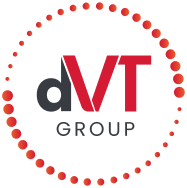Even the most resilient companies can come face to face with financial hardship in this challenging business landscape. When this happens, deciding to enter a Deed of Company Arrangement (DOCA) can prove to be a powerful tool for those seeking a second chance.
While this may seem daunting, it empowers companies to navigate their financial challenges and give them new life where otherwise they may have collapsed.
What is a DOCA?
A Deed of Company Arrangement (DOCA) is a formal agreement between a company and its creditors that sets out the terms of an arrangement for the company’s future. It outlines how their debts will be repaid and under what terms the business will continue to operate.
It is a formal arrangement which statutorily binds all creditors. Often the interests of the company’s creditors would be better served by entering an arrangement rather than liquidating the company.
DOCA’s are best suited to companies experiencing temporary financial difficulties but have a reasonable chance of recovery. It can help a business the opportunity to restructure and regain financial stability.
Benefits of a DOCA
There are many benefits to companies in financial distress, including:
- Preservation of the business: DOCA can provide a mechanism for preserving the business of the company and avoiding liquidation, which can be beneficial for employees, creditors, and other stakeholders.
- Flexibility: DOCA can be tailored to the specific needs of the company and its creditors, providing flexibility in the terms of the arrangement.
- Reduced debt: DOCA can provide a mechanism for reducing the company’s debt burden, improving its financial position, and increasing the likelihood of its survival.
- Improved cash flow: DOCA can provide for the payment of debts over a longer period of time, which can improve the company’s cash flow and allow it to continue trading.
- Reduced risk of litigation: DOCA can provide a mechanism for resolving disputes between the company and its creditors, reducing the risk of litigation and the associated costs.
Whilst a DOCA can be a useful tool for companies in financial distress, it should only be entered into after careful consideration of the company’s financial position and the interests of its creditors.
How it works
A DOCA can be proposed during a Voluntary Administration process. It is up to creditors to determine whether to accept a DOCA or put the company into liquidation. A meeting of creditors is called by the administrator (usually 28 days after the appointment) at which a report into the affairs of the company is tabled outlining issues found and a recommendation of the administrator as to any proposed DOCA.
For a DOCA to be passed, it needs the approval of the majority in number and the majority in value of creditors voting in attendance at the meetings. If there is a tie between the number of creditors and the value of creditors voting, the Administrator will need to use a casting vote. This vote is normally cast in accordance with the recommendation in the Administrator’s report to creditors.
If accepted by creditors, a DOCA could allow the company to recommence trading without some of the financial burdens it previously held. The DOCA proposal should include the following:
1. the terms and conditions of the arrangement
2. how the company will repay its debts
3. the proposed timeline, and
4. any changes to the company’s operations or structure.
It must be carefully prepared, addressing the concerns of creditors and providing a comprehensive plan for financial recovery.
As every business situation is unique, engaging an insolvency practitioner or a legal professional experienced in DOCA arrangements is advisable. They can help assess the financial situation, guide you through the DOCA process and assist in drafting the proposal to maximise the chance of the DOCA being accepted by creditors.
In conclusion, a DOCA offers a customised solution enabling both parties to derive maximum benefits from the arrangement. With this comes not only a possible pathway to recovery, but the added benefit of safeguarding employees’ livelihoods and preserving the relationships with valued stakeholders.
If you are wanting to speak to a specialist about a unique situation or a possible DOCA, please contact Antony Resnick at dVT Group at (02) 9633 3333 or email mail@dvtgroup.com.au.
dVT Group is a business advisory firm that specialises in business turnaround, insolvency (both corporate and personal), business valuations and business strategy support.


